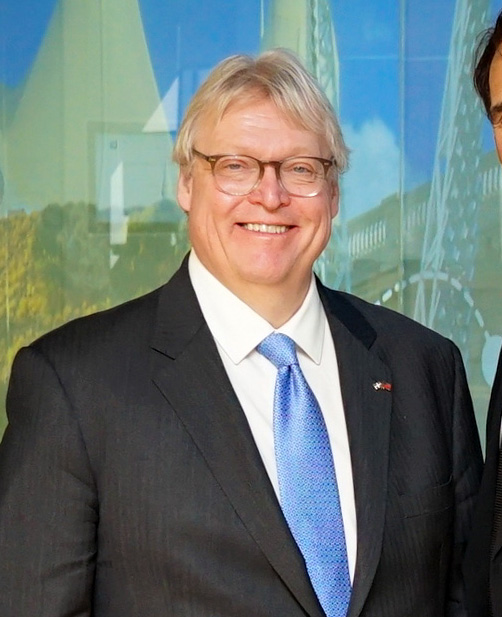Canada News
Health ministers meet in Winnipeg to talk over cannabis, pharmacare

FILE: The Honourable Doctor Gaétan Barrette, from the Québec National Assembly, with Québec Washington Office tours the Kaiser Permanente Center for Total Health with Robert Pearl, MD, Executive director and CEO, The Permanente Medical Group; president and CEO, Mid-Atlantic Permanente Medical Group; co-CEO, The Permanente Federation, LLC (Photo By Center TotalHealth, CC BY-SA 2.0)
WINNIPEG — Provincial and territorial health ministers say they are interested in exploring a national pharmacare program and other initiatives — but only if the federal government pays its share.
At the end of the first day of their annual meeting, several health ministers called on Ottawa to put up more money if it wants a pharmacare program, new mental-health treatments and opioid addictions services.
“The No. 1 question today (is) what funding role will Ottawa be taking,” Quebec’s Gaetan Barrette said Thursday.
“We want to provide more services. We understand what’s at stake. We understand the need. We also live on a daily basis with limitations we have … because of funding.”
Barrette said the issue would be discussed further on Friday when federal Health Minister Ginette Petitpas Taylor and Indigenous Services Minister Jane Philpott were to join the discussion.
The provincial ministers said Ottawa’s annual health-transfer increases, which were reduced last year to three per cent from six per cent — are not keeping up with the rising cost of health care.
Alberta’s Sarah Hoffman said new health programs could be helped by the Trans Mountain pipeline project. The federal government agreed to buy the existing pipeline, expansion project and terminals from Kinder Morgan Canada for $4.5 billion after the company threatened to walk away in April.
“Projects like Trans Mountain, that bring in $15 billion in national revenue and 15,000 jobs, will go a long way to helping us move forward on these important health initiatives,” she said.
Alberta refused to endorse the official statement stemming from a meeting of the western premiers in May because it didn’t include support for the pipeline. Hoffman said it was “so good to be back at the table” at the health ministers meeting.
Manitoba’s Kelvin Goertzen said he is disappointed Ottawa has not released an extensive public awareness campaign to warn Canadians about dangers associated with cannabis consumption. With legalization of recreational pot coming Oct. 17, it’s incumbent on the federal government to warn people about the dangers of cannabis consumption, he said.
“We’ve been disappointed that the awareness campaign, nationally, hasn’t been what we might have expected, but certainly we are hopeful …
that that might change.”





















